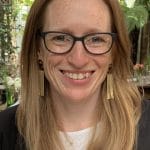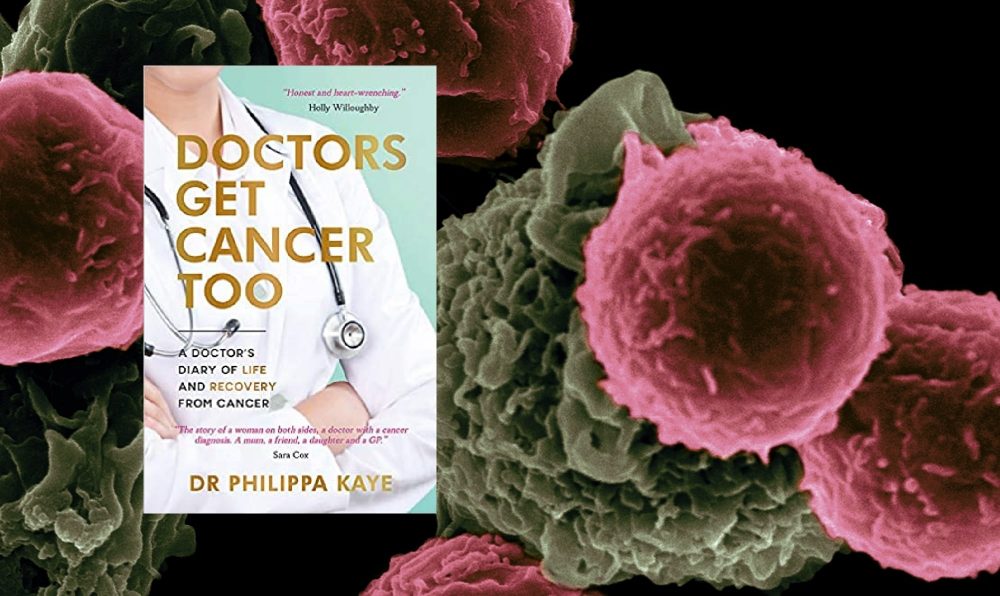 Sarah Invine is a GP working in SW London, GPwER Dermatology at Guy’s Hospital and GP trainer with a passion for medical education. She is on Twitter: @DrSarahInvine
Sarah Invine is a GP working in SW London, GPwER Dermatology at Guy’s Hospital and GP trainer with a passion for medical education. She is on Twitter: @DrSarahInvine
Few of us relish sitting in the other chair in the consultation room. We prefer the one with wheels, the one in front of the computer, the one where we feel in control. We know what to do in that chair. We know how to talk, how to act and how to respond. It is perhaps not until we sit in the other chair, the patient’s chair, having been told for example we have cancer that we know for ourselves the emotional turmoil that such a diagnosis brings. The perceived control over our lives is lost. All of us are likely to be a patient one day and yet doctors often consider themselves immune to cancer. We are human too and one in two of us will have a cancer diagnosis in our lifetime, just like our patients.1
We are human too and one in two of us will have a cancer diagnosis … just like our patients.
Philippa Kaye, a GP, media doctor and author, writes from the heart, with humour, in her recently-published diary of life as a doctor diagnosed with bowel cancer aged thirty nine. She describes the physical and emotional pain she experiences as she sits in the patient’s chair, and shares her vulnerability during times of immense uncertainty. She seeks answers to questions she knows cannot be answered.
Writing is her attempt to control a situation that ‘was entirely out of my control.’ Medical school tends to select those with type A personality, for whom not being in control does not sit well. Kaye describes her fear for the future, her frustrations, her sadness and the unfairness of it all – something most of us at her age will not have been forced to consider. A cancer diagnosis can be all-consuming; as Kaye puts it, ‘The cancer is the last thing I think of before I go to sleep, the first thing that enters my head when I wake up. It is all-encompassing… and controlling everything.’
Medical training helps us better understand the pathophysiology of disease, the evidence for management options, and the risk of recurrence. However, it does not equip us to answer the questions of how to cope with the fear that uncertainty brings or the emotional burden of the disease. For some, priorities will change as we realise time is our most precious resource. Finding new purpose in what we do and tuning in to non-metric achievements such as optimising relationships with those we love becomes a renewed priority.
Pre-covid, Kaye had support from friends, family and the medical team during her first surgery and chemotherapy. Despite this, she, like others, describes a sense of being entirely alone despite being surrounded by people. ‘You are alone in your head with your thoughts, your mind, alone in your body, in your very soul, and you give all of these, your whole self, to strangers to hold, to protect, to heal, to cure.’ That sense of doing it alone will be exacerbated for those undergoing treatment during the pandemic (if it hasn’t been postponed or stopped). There will be those for whom no family members bore witness to their illness, their treatment and their hospital admissions. The lack of visitors during the pandemic can impact on patients’ wellbeing. The effects of the lack of psychosocial support should not be underestimated.2
The constant struggles between the rational and emotional mind ….. are laid bare.
Choosing to publish her diary as a response to her cancer diagnosis, Kaye hopes to enable others to feel less alone and more supported. The constant struggle between the rational and emotional mind, as well as the uncertainty of living with the fear of recurrence are laid bare. We can become more empathetic doctors by improving our understanding of the patient journey. In this book you will rediscover the humanity behind a diagnosis. Not everything can be fixed: sometimes it is enough to sit alongside people at the edge of the human predicament. Ultimately, it is a story of hope in cancer survivorship: ‘Cancer does not always take away, it can [also] give.’
- https://www.cancerresearchuk.org/health-professional/cancer-statistics/risk (accessed 19/02/21)
- Impact of visitor restriction rules on the postoperative experience of COVID-19 negative patients undergoing surgery: Ryan D Z et al. Surgery. 2020 Nov; 168(5): 770–776. Accessed online at: https://www.ncbi.nlm.nih.gov/pmc/articles/PMC7437486/ (19/02/21)
Featured book
Philippa Kaye. Doctors get cancer too. Pub: Vie, 2021. ISBN-13 : 978-1787838130
Featured photo by National Cancer Institute on Unsplash






